Review for Moribito: Guardian Of The Spirit - Part 2
Introduction
Why do I always do this? I know full well that anime is a piecemeal affair, with distributors releasing series in chunks (bigger chunks now thankfully), and that I really need to measure my appreciation for a series as it unfolds over however many volumes. Yet once again, I gushed like a sycophant at the release of Moribito: Guardian of the Spirit - Part 1, when it was released just a couple of weeks ago. Looking back at that review, it may be that I have said all that there needs to be said about this series, and if the show unfolds in the way that it commenced, expanding on that may entail a whole heap of spoilers. The only other alternative is that in an unexpected reversal, the story declines in quality in the second half. And I don't particularly want to write that review. That Moribito might actually improve… We would have to Spinal Tap the scoreboard.
Arriving in Yogo after two years away, the spear-woman Balsa has nothing on her mind but getting her spear repaired. She certainly doesn't expect to rescue a young prince who has been thrown into a raging torrent. The prince's mother invites her to the palace to thank her, but it's more to lay a burden upon her than to endow her with riches. Prince Chagum has been possessed by a water demon, at least that is the opinion of those who know of his nightmares, and it's the Mikado's duty to rid the land of water demons. So it is that Chagum's father has ordered his death. The second Queen pleads with Balsa to take her son and keep him safe. It's a good thing that Balsa has a self-appointed mission to save eight souls. If she can protect Chagum, that will be the eighth soul. The palace is set ablaze as the perfect cover for an escape, but there are those in the court who are too shrewd to fall for such a ruse. The populace may be kept appeased by announcing the prince's death, but there's still the matter of establishing it as fact, so seekers are sent in pursuit. Balsa and Chagum have to find shelter in the town with a couple of Balsa's friends, Toya and Saya, and they also find help from a herbalist named Tanda. Hiding in plain sight, Balsa goes about raising Chagum as a common member of society, but the water demon's egg that is gestating in Chagum hasn't finished with him yet. Also, looking after Chagum reminds Balsa of her own past. Meanwhile, there are those in the royal court who realise that with the 'death' of Chagum, the ill omen that lies over the land hasn't lifted as yet. The great drought is still imminent, as two worlds draw ever closer together.
At the end of the previous volume, the Magic Weaver Torogai had travelled to the Knot to consult with the Water People about the meaning of the events unfolding in Yogo, while the Star Reader Shuga was uncovering some aspects of history that many have kept carefully concealed. Balsa and Chagum had settled down into a neat little family unit, but some indiscreet behaviour at a Summer Festival jeopardised all that, and Balsa is convinced that she has broken her vow never to kill. The concluding half of the series, thirteen episodes in all, is presented across two discs from MVM.
Disc 1
14. The Knot
15. Untimely Death
16. With All One's Heart
17. The Water Mill Burns
18. The Ancient Village
19. Escape
20. To Hunter's Hole
Disc 2
21. Jiguro Musa
22. Season of Awakening
23. In Search of the Shigu Salua
24. The Last Hope
25. Celebration
26. Departure
Picture
Moribito gets a 1.78:1 anamorphic transfer. It is an NTSC-PAL conversion as is usually the case for anime in the UK, but it's not too bad when it comes to it, with the ghosting and judder quite minimal. It certainly doesn't harm the animation any, and this is one gorgeous animation. Moribito is a rich, lush and vibrant show, with a gorgeous palette of colours, and a constantly high frame rate. The character designs are distinctive and memorable, while the emphasis on conveying emotion through subtle animation is astounding. There is so much detail here; a raised eyebrow, pursed lips, half a smile, it all comes across clearly. As much as the voice actors, the animated characters here are performing as well. It's also a very dynamic anime, there's always some aspect of motion, some energy to the scene. It's indicative of a lavish budget, dedicated animators, or both.
Sound
You have the option of DD 5.1 English, and DD 2.0 Japanese, along with translated subtitles and signs. I was very happy with the original language track, as always, but from what I sampled of the English dub, it was certainly acceptable, if not remarkable. The 5.1 surround is definitely preferable when it comes to the show's action, ambience and music, but the dub is a little average for a show of this quality. It certainly isn't up to Ghost In The Shell standards. Particularly jarring is the idiomatic English in a rather fantastic setting. The music is excellent, Kenji Kawai does the honours for the show's score, and it's very much a piece of the story, hard to categorise out of context, while the show's opener from L'Arc en Ciel is just the rousing theme to get you jazzed for another episode.
For some odd reason, disc two has the audio and subtitle options player-locked. You can't alter the settings from within the programme, only from the menu, and you are limited to English with signs, or Japanese with subtitles.
Extras
All you get are trailers for Slayers Revolution and Rozen Maiden.
Conclusion
Perfect! Moribito: Guardian of the Spirit is as perfect a bit of storytelling as I have ever seen. There are a lot of things it is not. It may not be a groundbreaking piece of sci-fi fantasy, it may not have the most stunning action sequences, it may not have the most memorable characters, and it certainly isn't the most original story ever devised. But what it does is tell that story in a peerless fashion, with impeccably judged pacing, divine and rounded character development, all of which ensure that it is fully formed, leaving no loose ends and no plot holes. It will most certainly leave you wanting more, but you won't be in any way disappointed with what you do get.
All the superlatives I liberally sprayed in the direction of the first instalment apply with equal measure here, with the addition that as this half sees the story head towards its resolution, the pace picks up, the layers of the mysteries peel back, and there's actually a greater satisfaction that comes from watching these episode, albeit tinged with a certain disappointment that the inevitable conclusion will arrive. Moribito's is such a well formed, brilliantly coloured and imaginative world (or rather worlds) that I wound up wishing that there would be more stories and more adventures. Indeed, one moment during the final episode even teased at the possibilities.
There's quite a bit to Moribito. On the surface it feels like a simple fairy tale, with a young prince rescued by a bodyguard, who swears to protect him no matter what. Like all good fairy tales, there are monsters to fear, magic to wonder at, and plenty of fantastic adventures. A demon lays a spirit egg in Chagum, and the legends say that a monster will come and kill him to eat the egg. At the same time, if the prince doesn't die so that the egg is born at the right time, the drought afflicting the nation will not end, and the kingdom will die. But then there is the sci-fi fantasy angle to the story, with it serving as an allegory for the cycle of nature being disrupted by mankind and civilisation. Nayug and Sagu are two parallel, co-existing worlds, yet events in one world have an impact on the other, and the Shin-Yogo Empire's growth has disrupted that cycle, perhaps irreparably.
There is also the fascinating aspect of court politics, and the rewriting of history. There are two peoples living in the Empire, the Yogo rulers and the native Yakoo, and what was written down as fact by the conquerors, 200 years previously, has become stories, then legends, and myths, all twisted and warped down the years. At the same time, the arrival of 'civilisation' has affected the Yakoo, so that their oral histories are being lost, as more and more of their children choose the city life, and abandon their traditions. The Yogo rulers exacerbate all of this is by deliberately rewriting the past to show their ancestors in the best possible light. This means that when history does inevitably repeat itself, they deal with the situation by making all of the wrong decisions.
Still, it's the relationship between Balsa and Chagum that is at the heart of the story. With Balsa, the hardened warrior, and implacable spearwoman, suddenly thrust into an unfamiliar role as surrogate mother to the prince. Naturally she attacks the problem the same way as she does any battle, head on. At the same time, Chagum, who has probably for his entire life been raised by servants in the royal court, and waited on hand and foot, finds that Balsa is now acting as his mother, and indeed is closer to him than his real mother ever was. They both have to feel their way into, what is for both of them, an unfamiliar relationship, but perhaps because of that, the bonds that form between them are even stronger. You'd have to be made of ice not to have your heartstrings tugged upon at some point.
It may not be flashy, it may lack immediate impact, and it certainly isn't the most original anime ever made. But it is story-telling at its finest. It's a tale that will grip you from beginning to end, with realistic, believable, and wonderfully developed characters. The attention to detail is astounding (12-year-old Chagum has a growth spurt during the story), the animation is breathtaking, and its gentle, thoughtful and considered approach to telling its story means that Moribito: Guardian of the Spirit will stay with you for years to come, and you'll revisit the anime again and again. You owe it to yourself to get this show.
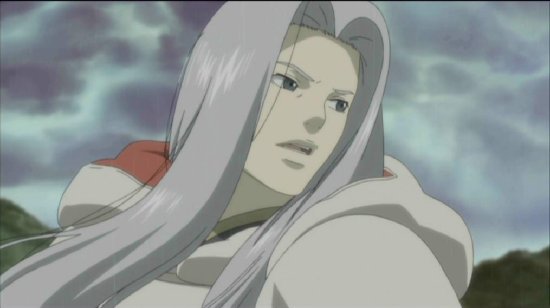
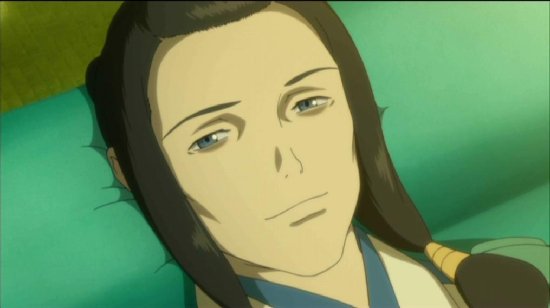
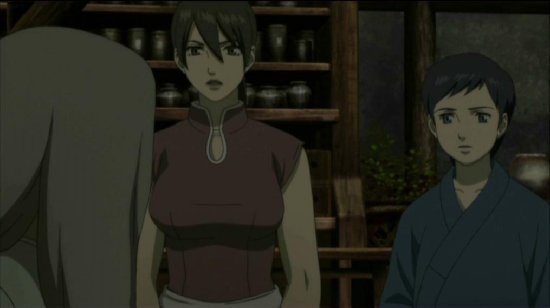
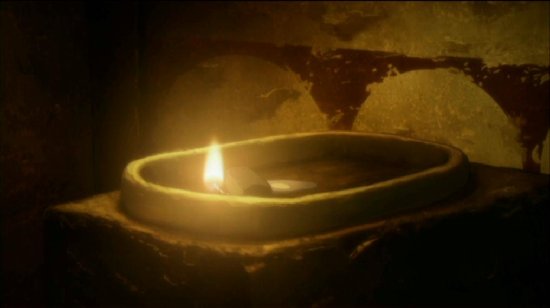
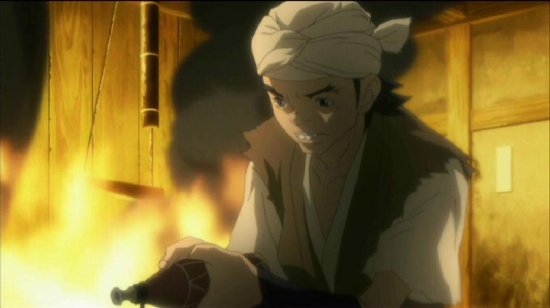
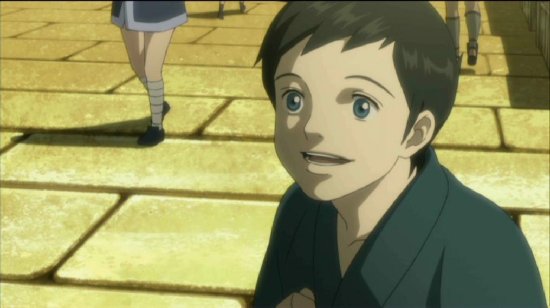
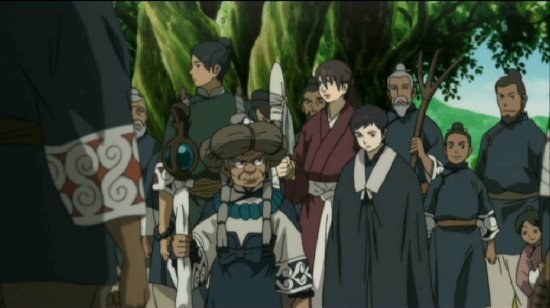
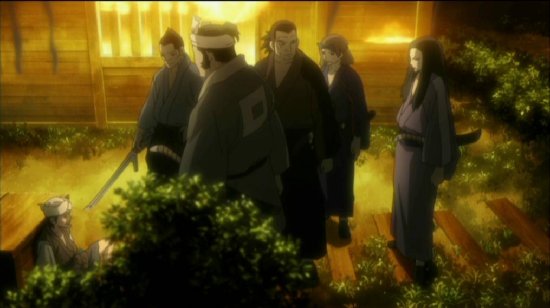
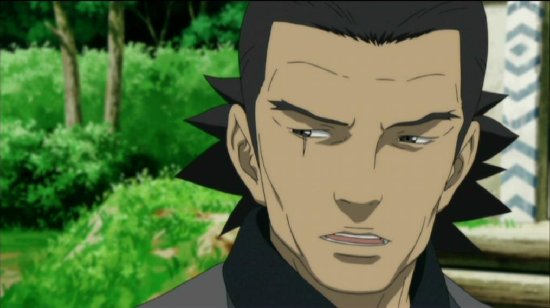
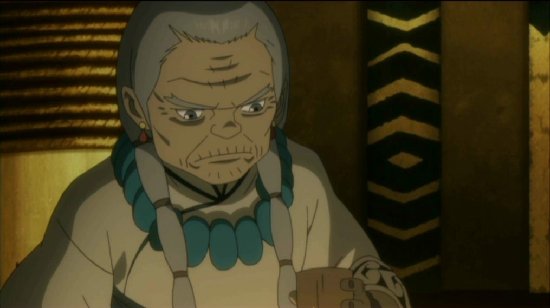
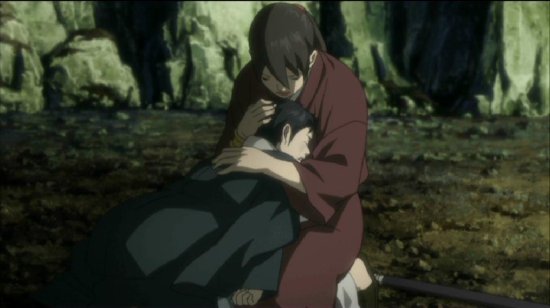
Your Opinions and Comments
Be the first to post a comment!